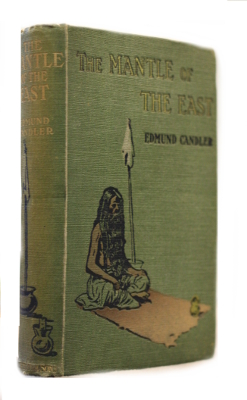About the book:
A lovely travel account of India and the Angor Wat, mainly to pilgrimage sites. Contents are as follows:
1. Kashi
2. In Rajputana
3. In a Garden at Gyantse
4. The Sundarbans
5. Amritsar
6. Mount Abu
7. In Robi Bir
8. Angkor, a Pilgrimage
9. The Jamma Masjid
10. Wlid-fowl and Parlakimedi
11. Another Way Home
12. London
About the author (from Wikipedia):
Edmund Candler (1874 – 1926) was an English journalist, novelist and educator notable for his literary depictions of colonial India. His fictional tropes and settings are comparable in many ways to those of Rudyard Kipling, a writer whom he self-consciously imitated.
Candler was educated at Repton School and Emmanuel College, Cambridge, where he graduated in classics in 1895. Candler embarked on a career in India which was to last intermittently for the next twenty-five years. He aimed to finance his literary ambitions by teaching, and was first employed by a school at Darjeeling in the Himalayan foothills. It was on the other side of the great range that he would first achieve prominence as a writer, after gaining an appointment as the Daily Mail correspondent accompanying the expeditionary force led by Sir Francis Younghusband into Tibet in 1903-4. His experiences in Tibet, including witnessing the storming of the Gyantse Dzong, later provided material for his travelogue The Mantle of the East and the short story ‘At Galdang-Tso.’ His account of the expedition, for which he is today principally known, was published in 1905 as The Unveiling of Lhasa. He returned to teaching in India but resigned his post at Manikpur in Bengal in a heightened atmosphere of political unrest following the Alipore Bomb Case. He claims in his autobiography that he resolved to leave after finding a death-threat lying on his desk. Preferring the politically quiescent atmosphere of a princely state, he took up the post of Principal at Mohindra College, Patiala. He left Patiala to serve as a war correspondent during the 1914-1918 War, and reported on the British capture of Baghdad for the Manchester Guardian in 1917. On returning to India he was appointed Director of Publicity for the Punjab in 1919, a position which he held until his permanent retirement to England in 1921.


